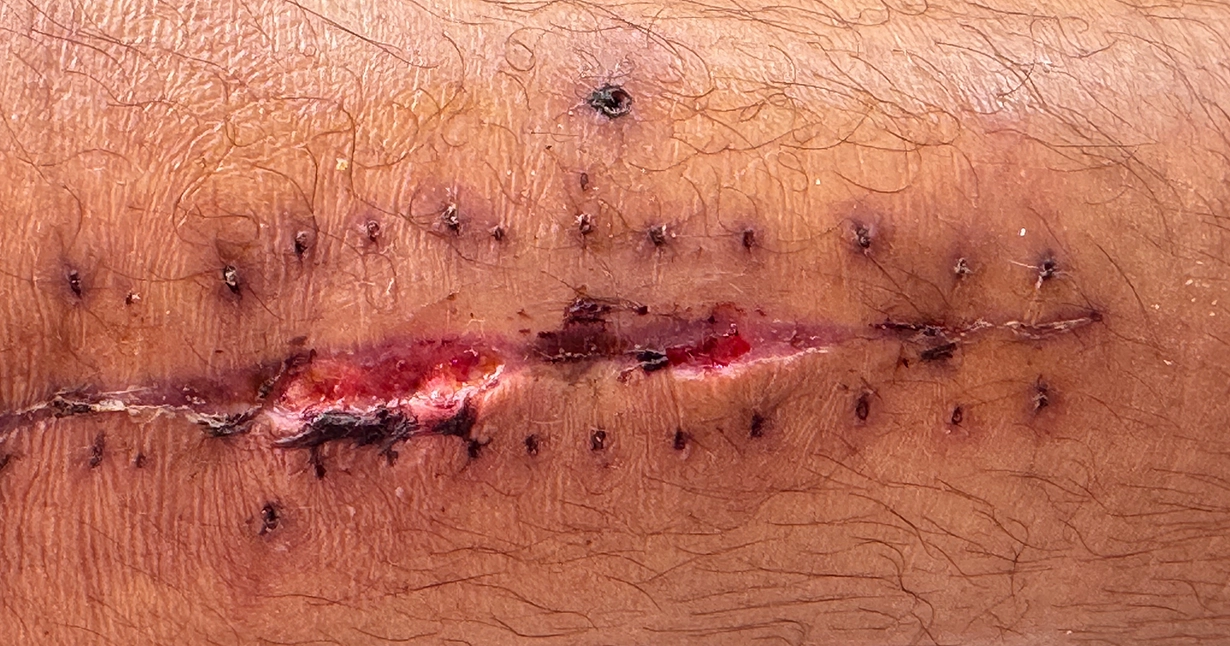Wound Wellness Approach
At Wound Wellness, we understand that surgical wound complications can be concerning and may require specialized expertise beyond routine post-operative care. Our nurse practitioners have extensive experience managing complex surgical wounds and work collaboratively with surgeons throughout Lake Villa and surrounding areas to provide comprehensive complication management. We offer both in-office and mobile services, ensuring that patients with healing difficulties can access expert care regardless of their mobility status. Our approach combines advanced wound care techniques with attention to the underlying factors that may be impeding healing, providing the specialized intervention needed to achieve successful outcomes.
If you're experiencing surgical wound complications or have concerns about your post-operative healing, specialized help is available. Contact Wound Wellness today to schedule an evaluation with our experienced wound care team. We'll work closely with your surgeon to assess your situation, provide appropriate treatment, and help ensure the best possible healing outcome. With our expertise in surgical wound management and convenient service options throughout Lake Villa and Lake County, expert care for surgical complications is readily accessible. Call us at (224) 215-6242 or use our online appointment request form to get the specialized attention your wound healing requires.
Condition at a glance
Surgical Wounds
Surgical wound complications can arise from various factors including patient health status, surgical technique, post-operative care, and environmental conditions. Common complications include delayed healing, infection, dehiscence (wound separation), seroma or hematoma formation, and abnormal scar development. Risk factors for complications include diabetes, poor circulation, smoking, obesity, malnutrition, advanced age, compromised immune system, certain medications (especially steroids), and previous radiation to the surgical area. The timing of complications varies—early problems typically occur within days to weeks after surgery, while late complications may develop months later. Understanding these risk factors helps predict which patients may benefit from specialized wound care intervention.
Recognizing signs of surgical wound complications enables early intervention that can prevent more serious problems. Normal healing involves some redness, swelling, and discomfort that gradually improves over time. Concerning signs include increasing pain rather than gradual improvement, redness that spreads beyond the incision line, unusual warmth, fever, pus or foul-smelling drainage, and any separation of wound edges. Some drainage is normal initially, but it should decrease over time and remain clear to light pink in color. Thick, cloudy, green, or malodorous drainage suggests infection. Wound separation may be partial, affecting only the skin surface, or complete, involving deeper layers and potentially exposing internal structures. Any sudden increase in drainage, especially if accompanied by a "popping" sensation, may indicate dehiscence requiring immediate attention.
Our approach to surgical wound complications focuses on identifying and addressing the underlying causes while promoting optimal healing conditions. We begin with thorough assessment of the wound, surrounding tissues, and factors that may be impeding normal healing. Treatment may include wound cleaning, debridement of non-viable tissue, culture and sensitivity testing for suspected infections, and appropriate antibiotic therapy when indicated. For wounds with separation, we evaluate whether surgical revision is needed or if healing can be achieved through conservative management. We also address modifiable risk factors such as blood sugar control, nutritional status, smoking cessation, and medication management to optimize healing potential. Throughout treatment, we coordinate closely with your surgeon to ensure continuity of care and appropriate follow-up.
When to Seek care
Contact your surgeon or wound care provider immediately if you develop fever, especially when accompanied by increasing pain or unusual drainage from your incision. Seek prompt attention for any separation of wound edges, increasing redness that spreads beyond the incision line, or drainage that becomes thick, cloudy, or foul-smelling. Don't wait if you experience sudden onset of severe pain, especially if accompanied by a "popping" sensation that might indicate dehiscence. While some discomfort is normal after surgery, pain that worsens instead of gradually improving warrants evaluation. Any concerns about your surgical wound healing should be addressed promptly, as early intervention often prevents minor problems from becoming serious complications.
Prevention Management
Preventing surgical wound complications begins before your procedure with optimization of your overall health status. If you have diabetes, work with your healthcare team to achieve the best possible blood sugar control before and after surgery. Stop smoking at least several weeks before surgery, as tobacco use significantly impairs wound healing and increases complication risks. Maintain good nutrition with adequate protein intake to support tissue repair. Follow all pre-operative instructions regarding medications, especially if you take blood thinners or steroids that can affect healing. After surgery, carefully follow wound care instructions, keep the incision clean and dry as directed, and avoid activities that put stress on the healing tissues until cleared by your surgeon.
Preventing surgical wound complications begins before your procedure with optimization of your overall health status. If you have diabetes, work with your healthcare team to achieve the best possible blood sugar control before and after surgery. Stop smoking at least several weeks before surgery, as tobacco use significantly impairs wound healing and increases complication risks. Maintain good nutrition with adequate protein intake to support tissue repair. Follow all pre-operative instructions regarding medications, especially if you take blood thinners or steroids that can affect healing. After surgery, carefully follow wound care instructions, keep the incision clean and dry as directed, and avoid activities that put stress on the healing tissues until cleared by your surgeon.
Treatment Options
Treatment for surgical wound complications varies based on the specific problem but typically involves comprehensive wound assessment, culture testing when infection is suspected, and targeted interventions to address the underlying issue. We may provide advanced wound cleaning, debridement of non-viable tissue, negative pressure wound therapy for complex wounds, or specialized dressings that promote healing. For infected wounds, we coordinate antibiotic therapy based on culture results. In cases of significant dehiscence, we work with your surgeon to determine whether conservative management or surgical revision is most appropriate. Throughout treatment, we focus on optimizing healing conditions and preventing further complications.

